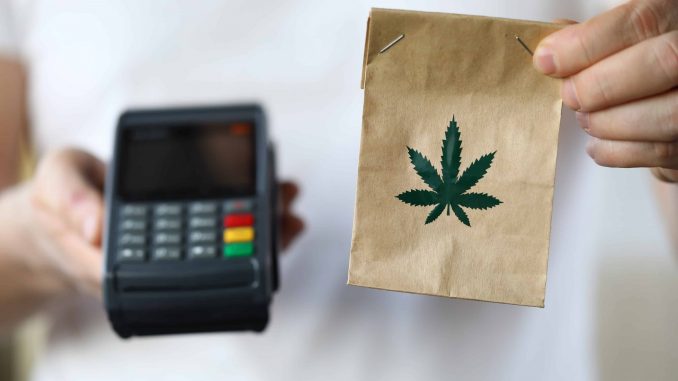
[ad_1]
Ever since cannabis became recreationally legal in Colorado, the industry has been on an upturn. Now, for the first time ever, the Colorado industry is trending down.
This became most obvious when looking at tax revenue, but there are other signs as well. Dispensaries are closing down, and delivery services and social clubs are still working to find their footing. This is helping bring tax revenues down, and as more states legalize, folks are beginning to worry that the Colorado cannabis boom is finally drawing to a close.
“More people are going to get laid off. We are probably going to see more small shops close down and a lot of brands are going to go away,” says Spencer Ward, salesman for Bronnor Corp., a company that manufactures edibles and infused products for brands across Colorado stores.
As of July, taxes and fees collected from retail cannabis reached $198.3 million, which is down $53.7 million, 21% from 2021. Colorado saw record sales in 2021, as dispensaries reached $2.2 billion and brought in $423.5 million in taxes, but this year is significantly lower.
Now, the fear is that if this decline continues throughout the year, state taxes that go to things like the Public School Fund will fall. It’s possible that the industry could bring in closer to $24.9 million for the Fund versus the $31.5 million brought in last year. The retail sales tax distribution to local governments could also drop from $27.8 million to $22 million.
This also goes hand in hand with the 44% drop that has been seen in medical cannabis sales, which Truman Bardley, head of the Marijuana Industry Group trade organization, calls “a big, big deal.”
“All the programs that rely on marijuana taxes are going to take a big cut,” Bradley claims.
Additionally, prices have dropped. In 2021, cannabis flower was selling for $1,300 a pound, and the trim used for tinctures and oils was $425 a pound. Now, the latest market rates from the Colorado Department of Revenue claim that flower is selling at closer to $700 a pound, and trim is down to $225 a pound. These are the lowest prices have been since 2014.
As prices are falling and less tax money is being brought in, supplies begin to outweigh demand, and though new licenses are still being given to cannabis businesses, some businesses are closing.
“We’ve seen time and time again that communities end up legalizing because they see the value in the regulated market and they see the cannabis industry as a potential solution to help bring more revenue into the community,” says Bradley. “But there is a point where taxation becomes predatory or unsustainable or both. And that’s what we are approaching…”
John Bailey, the founder of the Black Cannabis Equity Initiative, sees this as an inevitable change, since the industry is no longer new.
“What you are seeing is not a decline, but a leveling off of a saturated industry,” says Bailey. “Even in the midst of a decline, folks are still buying weed. They may not be buying as much. This is the marketing leveling off and it’s leveling off for a lot of reasons, it could be that we saturated the market with so many businesses.”
Others believe that states are taking advantage of their local industry with overtaxation. While this may have been necessary to shake the stigma and get cannabis legalized in the first place, now that most states have an industry and the novelty has worn off, these taxes are taking away from growers and small businesses.
“Ultimately, I think federal legalization is the only way where we can start to grow a stronger industry,” Chaz Faille, a Denver-based sourcing manager for the Willie’s Reserve brand, says. “Just being able to source product from other states and have distribution warehouses where that product is actually grown would go a long way. Instead of having a bunch of states that are running things differently.”
While it is not yet clear how much cannabis sales will dip in Colorado, and whether this is a sustained step for a developed industry or something that spells bad news, it is clear that the industry, and the state at large, can feel the decline.
[ad_2]
Source link

Soyez le premier à commenter